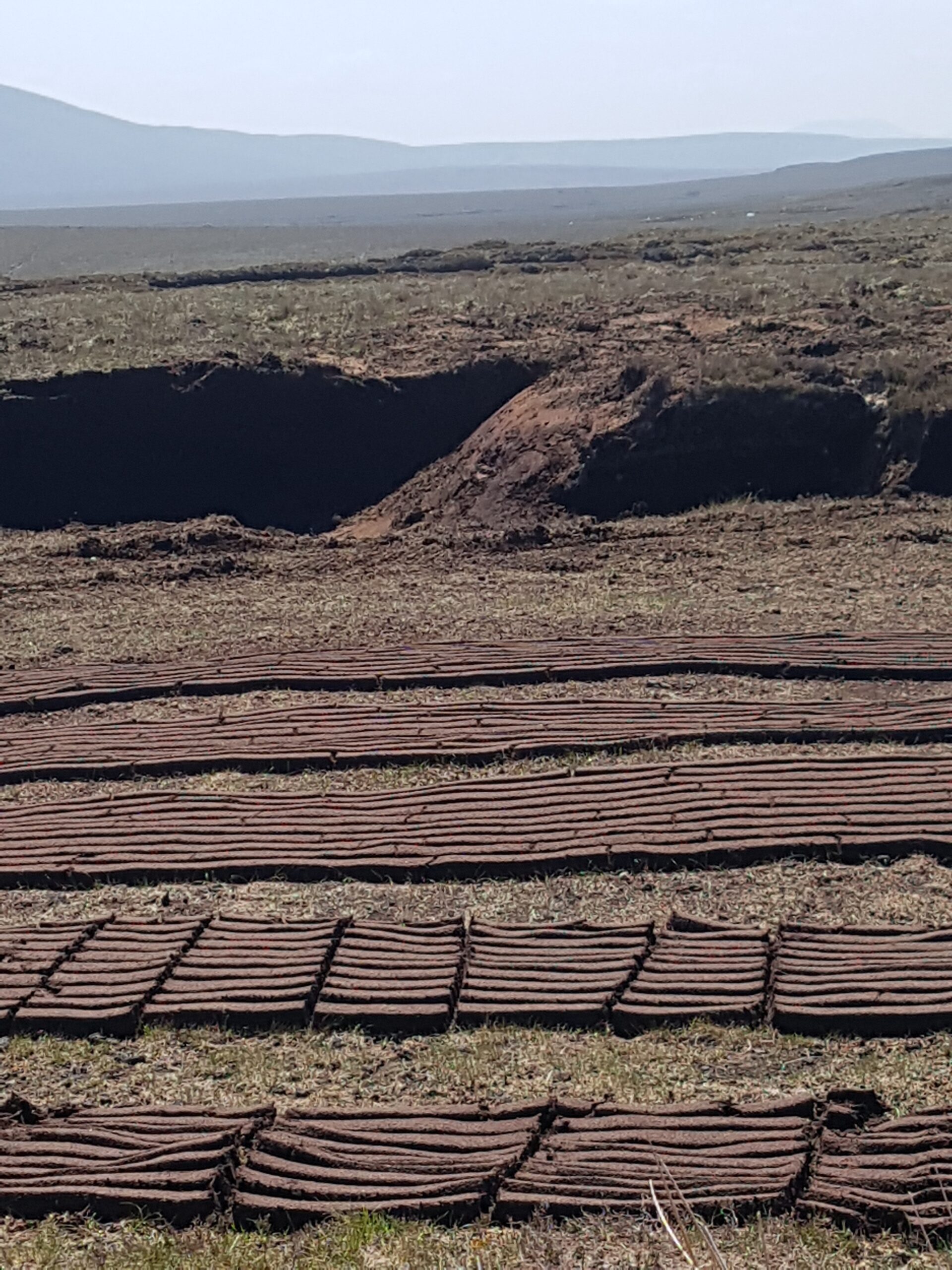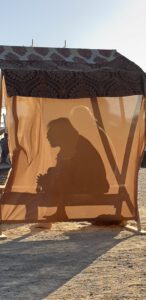The big difference between a warrior and a victim is that the victim represses, and the warrior refrains.
Don Miguel Ruiz, The Four Agreements
The more we witness our emotional reactions and understand how they work, the easier it is to refrain.
Pema Chödrön
Nothing pays off like restraint of tongue and pen. We must avoid quick-tempered criticism and furious, power-driven arguments.
Twelve Steps and Twelve Traditions (AA)
Following Thich Nhat Hanh’s advice, I slowed my breathing. I didn’t turn inward or shut my ears to what was being said, but I invited my body to breathe differently, — calmly, deeply. The shift in breathing shifted my mind as well. I could hear more clearly what was being said because it was no longer being drowned out by my own inner panic and need for peace.
Rabbi Rami Shapiro, Recovery — The Sacred Art: The Twelve Steps as Spiritual Practice
Just like physical fitness, the cultivation of Mental Fitness, when wholeheartedly adopted, becomes a way of life.
Anyone who has engaged in a practice of strengthening the body, raising fitness levels, and building stamina, thereby improving performance and resilience, knows that once initiated, this practice needs to be regular if the benefits are to be maintained.
Sometimes, due to injury or other obstacles, we get thrown off track and drop our practice. Even brief interludes reveal that we very quickly lose the gains we had so assiduously built up with dedication and great effort. We realise that we either maintain an on-going regular practice, or we slip back.
The same is true for other forms of fitness. The Twelve Steps (of Alcoholics Anonymous) refer to Spiritual Fitness, while the Positive Intelligence (PQ) Mental Fitness modality speaks of Mental Fitness. When viewed through the goal of achieving emotional balance, or emotional sobriety, these terms are synonymous.
The Twelve Step state that the addict has a default disposition of being `restless, irritable, and discontented´ without referring to root causes.
PQ goes a little deeper. This modality points towards fear-driven Saboteurs such as the Judge, the Controller, the Victim, etc. which are always on standby, waiting for the next opportunity to hijack us in our thoughts, emotions, and actions.
According to PQ, our Saboteurs helped us survive our childhood years: mentally, emotionally, and physically. They were the child’s way of earning safety, security, acceptance, or love, and of gaining independence. Basically, my Saboteurs are my four-year-old’s operating system.
It is important to feel grateful to our Saboteurs for securing our survival. This allows us to develop compassion for self and others for our imperfection. We need to acknowledge, however, that our four-year-old’s operating system is no longer fit for purpose in adult life.
We don’t want to be upset at our Saboteurs because that judgmental negative energy would intensify their negative energy. This is akin to pouring oil on the fire we would endeavour to extinguish. Instead, we want to be firm and aware with them, constantly training the Saboteur Interceptor muscle so that hijacking becomes less frequent and less intensive.
Ancient spiritual traditions and religions also speak of the same internal primordial conflict, using labels such as God and the Devil, good and evil. Depth psychology speaks of expanding the conscious realm to illuminate the shadow.
The opportunity afforded us as we go through life is to gradually become free of the shackles of fear-based beliefs and reactions which had become etched on our psyche in early childhood.
The prerequisite for recovery, and subsequent expansion of consciousness, is to become sufficiently aware of and abstinent from whatever addictive dynamic we have adopted in the first half of life. Some, such as those associated with substances: alcohol, cannabis, street drugs, prescription drugs, and the like, are easily identified.
Other, so-called process addictions are less easy to spot: Workaholism is lauded in our western capitalist society. Co-dependence is often a source of on-going suffering in relationships. Gambling is gradually emerging as a recognised scourge, as are addiction to pornography, social media, sex, etc. Drama is one of the most potent emotional drugs known to humankind.
The Twelve Steps suggest a process of self actualization which begins with admitting our core problem and the fact that we are, when propelled only by egoic power, stymied by it.
We then come to believe that, by accessing powers vibrating at higher frequencies than those of our ego, we can be restored from `dis-ease´ to `ease and comfort´. Then comes the decision to put our faith in and commitment into accessing and utilizing these higher frequencies, abandoning our old reliance on ego.
The execution of that decision (Step 3) is made up of written inventory (Step 4, `a fact finding and fact facing exercise´), sharing the inventory with another (Step 5), identifying and being willing to have the shortcomings of our out-of-date operating system taken from us (Step 6), asking for them to be removed (Step7), willingness to make our amends to those we have harmed (Step 8), and then making `direct amends, wherever possible, except when to do so would injure them or others´ (Step 9).
These steps, designed to quickly establish abstinence from our most pressing addictive dynamics, are the spiritual or mental equivalent of an intensive foundational physical fitness programme.
Some folks sign up at the local gym and engage in such programmes, especially at the beginning of each new year, only to find that their resolution fizzle out long before Easter. Dedication, continuity, and regularity must be brought to bear on the practice if sustained improvement (healing and growth) is to be attained and maintained.
To this end, the tenth of the Twelve Steps reads: `Continued to take personal inventory and when we were wrong promptly admitted it´. Note the word when, not if. Those who formulated these steps knew the human condition at depth. As humans, we err — every day. This fact makes a daily fitness programme indispensable, a key element of which is Step 10, in the pursuit of continued healing and growth.
`To work Step Ten well requires great moral courage, allowing us to attend to our actions in the moment, to continually measure them against the ethical standards we hold, and then to immediately admit and correct matters when we fail to live up to those standards´, writes Shapiro in his inspiring book.
This week I found myself in a situation of verbal conflict. A person very dear to me mistook a comment I had made for a personal attack on her self worth and integrity. The situation threatened to explode when she sent me feedback about her experience of the interaction.
On watching her video message, I lost my breath, and when it returned it was strained, tight, and defensive. The state of inner panic, familiar from my childhood, had been reactivated.
My inner dialogue became a rehearsal of all the old ways of calming the situation, attempting to explain how she had misinterpreted my comment, and how, even if she hadn’t, her response was inappropriate and unwise. I could clearly see that that would not help. A new approach was required. It began with my breath, exactly as described by Shapiro:
I didn’t turn inward or shut my ears to what was being said, but I invited my body to breathe differently — calmly, deeply. The shift in breathing shifted my mind as well. I could hear more clearly what was being said because it was no longer being drowned out by my own inner panic and need for peace.
My defences and rationalisations were tempting me to justify my statements and stance. Thanks to having regulated my body through the breathing, however, it became possible to calm the inner panic and put these aside. This allowed me to see the predicament of the other. Compassion began to flood my consciousness.
My words had caused her pain. My heart opened to the reality of her pain my reply reflected that, thanking her for her courage in sharing her inner world with me, and indicating my eagerness to learn more, free of analysis, interpretation, or judgement, at the next opportunity.
That was Step 10 in practice. In the following days, the scene re-emerged in my early-morning silent contemplative practice. A deeper level revealed itself to me, as anger began to bubble up from the seabed of my psyche.
I was transported back to an early childhood situation in which well-meaning, innocent, and loving signals from me, — intended to contribute to connection — were perceived as hurtful or threatening, and rebuffed by my long deceased mother, who (according to me) `should have known better´. Those final four words are key to this new discovery.
With my dearth of resources, the child (in that situation) had moved into Victim mode, deciding that this adult caregiver deserved to be punished for not living up to my expectations, expectations hidden beyond my own awareness. My anger was, therefore, justified, it argued. This is the most toxic form of anger.
This week, when the old algorithm of the Victim beckoned, I was able to draw upon many of the resources accumulated over recent decades to move into the energy of the Warrior to deal with the situation. The response was one of refraining, not attacking and repressing.
Moreover, deeper layers of motivation emerged from my shadow. It was clear to me how, since childhood, many adult interactions had been governed by the righteous, justified anger hidden in my shadow.
Once revealed, this too can be consciously relinquished (rather than repressed). This is a good example of the ongoing work of spiritual fitness, as defined in both the Twelve Steps and PQ.
The PQ practice encompasses learning to identify our most active Saboteurs, developing an early warning system of Saboteur interception, regulating our bodies to a degree sufficient to enable us to switch from the old fear-based (Saboteur) reactions to the loving, kind, aware response of the Sage. In Sage mode we access life-affirming resources such as Empathize, Explore, Innovate, Navigate, and Activate.
These powers are utilized within the Sage Perspective, which states that every incident or experience can be turned into a gift or opportunity.
The elegance of PQ is the simplicity of the model, whereby only three muscles need to be exercised each day: Saboteur Interceptor. Mind Command (facilitating the shift to Sage), and Sage Enhancer. A further advantage of the PQ modality is that the insights and exercises are all eloquently packaged in the PQ App which is easy to use on any smartphone of PC. This facilitates the indispensable daily practice (which makes up 80% of the programme).
PQ enables me to practice Step Ten in a prophylactic manner. Engineers would call it preventative maintenance. By engaging in regular PQ practice, the chances of Saboteur hijacking are reduced, leading to less frequent necessity of having to make amends in the first place.
When hijacking does occur, it takes less time to apply corrective measures, ideally it happens in real time. In the worst-case scenario, where hijacking occurs, thus causing harm to self or others, the recovery period is shortened.
I owe my survival to the Twelve Step recovery process. When used in combination with other resources (in this case PQ), even better outcomes can be achieved.
Becoming free of addictive dynamics is key to survival. Establishing emotional sobriety, growing spiritually, and keeping mentally fit: these allow us to heal and thrive.










